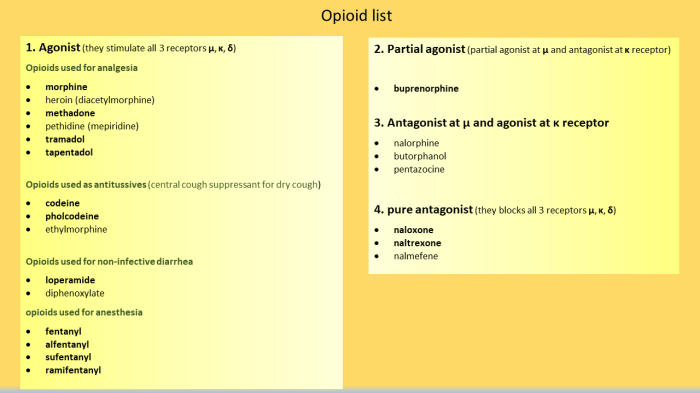Your 27 year old roommate uses opioids – Your 27-year-old roommate’s opioid use is a serious issue that requires understanding, support, and appropriate intervention. This guide aims to provide you with the knowledge and tools to navigate this challenging situation effectively.
Opioid use among young adults is a growing concern, with severe potential consequences. It is crucial to recognize the signs of opioid addiction and its impact on your roommate’s physical, emotional, and behavioral health.
Background Information

Opioid use is a serious public health issue, with a significant prevalence among young adults. Opioids are a class of drugs that include prescription pain relievers and illicit drugs such as heroin. They work by binding to opioid receptors in the brain, producing feelings of euphoria, relaxation, and pain relief.
However, prolonged use of opioids can lead to addiction, characterized by compulsive drug use despite negative consequences.
The prevalence of opioid use among young adults is alarming. According to the National Survey on Drug Use and Health, in 2020, an estimated 2.5 million young adults aged 18-25 reported using opioids in the past year. This represents a significant increase from previous years, highlighting the growing problem of opioid misuse among this population.
Opioid use can have severe consequences for young adults, including physical health problems such as overdose, respiratory depression, and organ damage. It can also lead to mental health issues such as depression, anxiety, and suicidal thoughts. Additionally, opioid use can disrupt education, employment, and relationships.
Impact on the Roommate
Living with someone who is using opioids can be a challenging and stressful experience. The roommate’s behavior may change significantly, becoming withdrawn, irritable, or secretive. They may also experience physical symptoms such as fatigue, nausea, and constipation.
Opioid use can also affect the roommate’s daily life and relationships. They may become unreliable, neglecting their responsibilities and withdrawing from social activities. This can strain relationships and create conflict within the household.
It is important to understand that opioid use is a complex issue, and it is not easy to help someone who is struggling with addiction. However, there are steps you can take to support your roommate and encourage them to seek help.
Communication and Support
Approaching your roommate about their opioid use can be difficult, but it is important to do so in a non-judgmental and supportive way. Choose a time when you are both calm and have privacy. Express your concern for their well-being and let them know that you are there to support them.
It is important to avoid blaming or accusing your roommate. Instead, focus on the impact of their opioid use on you and the household. Be specific about the behaviors that you have observed, and how they have affected you.
Once you have expressed your concerns, it is important to listen to your roommate’s perspective. They may be defensive or resistant, but try to remain patient and understanding. Let them know that you are not trying to control them, but rather help them get the help they need.
Intervention and Treatment
If your roommate is unwilling or unable to seek help on their own, you may need to consider an intervention. This is a structured process in which a group of concerned individuals confront the person about their drug use and encourage them to get help.
Interventions should be planned carefully and involve professionals such as a therapist or addiction counselor. The goal of the intervention is to motivate the person to enter treatment and begin the recovery process.
There are a variety of treatment options available for opioid use disorder, including detoxification, therapy, and medication-assisted treatment. Detoxification is the process of safely withdrawing from opioids under medical supervision. Therapy can help people address the underlying causes of their addiction and develop coping mechanisms.
Medication-assisted treatment involves the use of medications such as methadone or buprenorphine to reduce cravings and withdrawal symptoms. These medications can be effective in helping people maintain sobriety and reduce the risk of relapse.
Self-Care and Boundaries, Your 27 year old roommate uses opioids
It is important to prioritize your own well-being when living with someone who is using opioids. This means setting boundaries to protect yourself from the negative consequences of their drug use.
Some examples of boundaries include:
- Refusing to enable their drug use by providing them with money or transportation.
- Not allowing them to use drugs in your home.
- Limiting your interactions with them if their behavior is disruptive or harmful.
Setting boundaries can be difficult, but it is essential for your own well-being. It is also important to seek support from friends, family, or a therapist to help you cope with the challenges of living with someone who is using opioids.
FAQ Compilation: Your 27 Year Old Roommate Uses Opioids
How can I approach my roommate about their opioid use?
Choose a private and comfortable setting. Express your concern and support without judgment. Use “I” statements to convey your observations and feelings.
What are the warning signs of opioid addiction?
Physical signs include pinpoint pupils, drowsiness, and impaired coordination. Emotional signs may include irritability, mood swings, and withdrawal from social activities.
What are the different types of interventions for opioid addiction?
Interventions can range from brief counseling to formal interventions involving family and friends. The type of intervention will depend on the severity of the addiction and the individual’s readiness to change.


